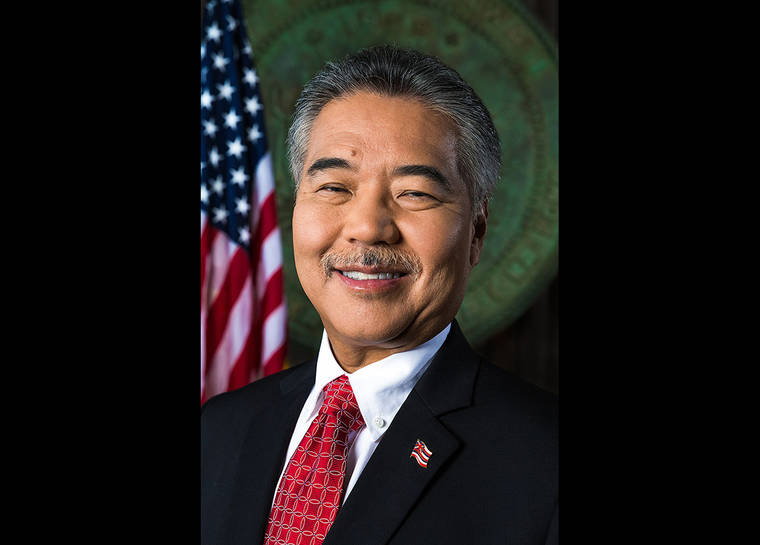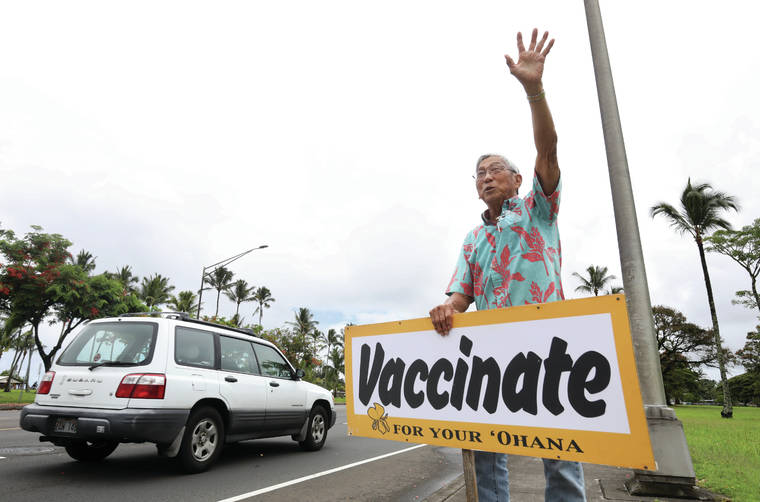Gov. David Ige said Monday requiring state employees to be vaccinated for the novel coronavirus or be subject to weekly COVID 19 testing “is a consideration.”
The governor has said in the past he would prefer full U.S. Food and Drug Administration approval of vaccines instead of the emergency use authorization manufacturers are operating under before mandating vaccination for employees.
California, however, announced Monday its state employees will have to be vaccinated or be subject to weekly testing, starting next month.
“We are looking at that based on the Delta variant and the spreading of the COVID-19 in our community right now,” Ige said during a livestream Monday. “We would prefer to have full FDA approval. We’ve been asking about what that timeline looks like, and we really haven’t gotten a response that makes us feel comfortable. So we are looking at what steps would be necessary to mandate that for employees ahead of FDA approval.
“… We are looking at and thinking about what would be the best public health program for our state employees,” he continued. “ … The cost of testing has really dropped significantly, and there are antigen tests that are less than $10 to administer — and delivers a fast and accurate result in 15 minutes or less. So the whole landscape of testing is changing, and we evaluate all the time.”
According to Ige, outbreaks in the state’s correctional facilities has officials considering whether to require vaccination for corrections workers.
“You know, we also are testing more regularly those in those congregate settings because we know we want to get ahead of the variants and we want to make sure that we can keep those in congregate settings healthy and safe,” he said.
With 163 new infections reported statewide, Monday marked the 12th straight day of triple-digit confirmed or probable new COVID-19 cases.
“I think what we would be looking at is gathering sizes and the size of allowable gatherings. That seems to be driving the triple-digit cases that we’ve seen,” Ige said. “We continue to see restaurant clusters and other workplace clusters. We continue to see clusters in churches and religious gatherings.”
The governor said there are a number of factors he has to take into consideration before he would reorder some of the previously issued COVID-19 emergency restrictions.
“It is about the hospital capacity, the number of cases we’re seeing in the hospitals and those that require ICU beds and ventilators. And we’re doing so well,” he said. “Really, the numbers of COVID cases in hospitals and ICUs remain really low at the beginning of this eight- or nine-day spread.”
But hospitalizations and have increased, he said.
“We are watching it carefully and working with the health care industry to keep it under control.”
Ige reiterated that most of the cases reported in the current spike are among the unvaccinated, and that breakthrough cases of vaccinated individuals “are relatively mild.”
“So we are not seeing hospitalizations at the same rate that occurred previously. And that has helped us to not have to reimpose restrictions,” he said. “… Anyone needing any kind of discretionary hospital procedure can get it at this point in time. We are talking to hospital executives about what steps would occur prior to taking more drastic action. And certainly, I think you’ll see stopping elective procedures … and other measures to preserve hospital capacity … before we re-institute more restrictions in the community.”
Email John Burnett at jburnett@hawaiitribune-herald.com.









